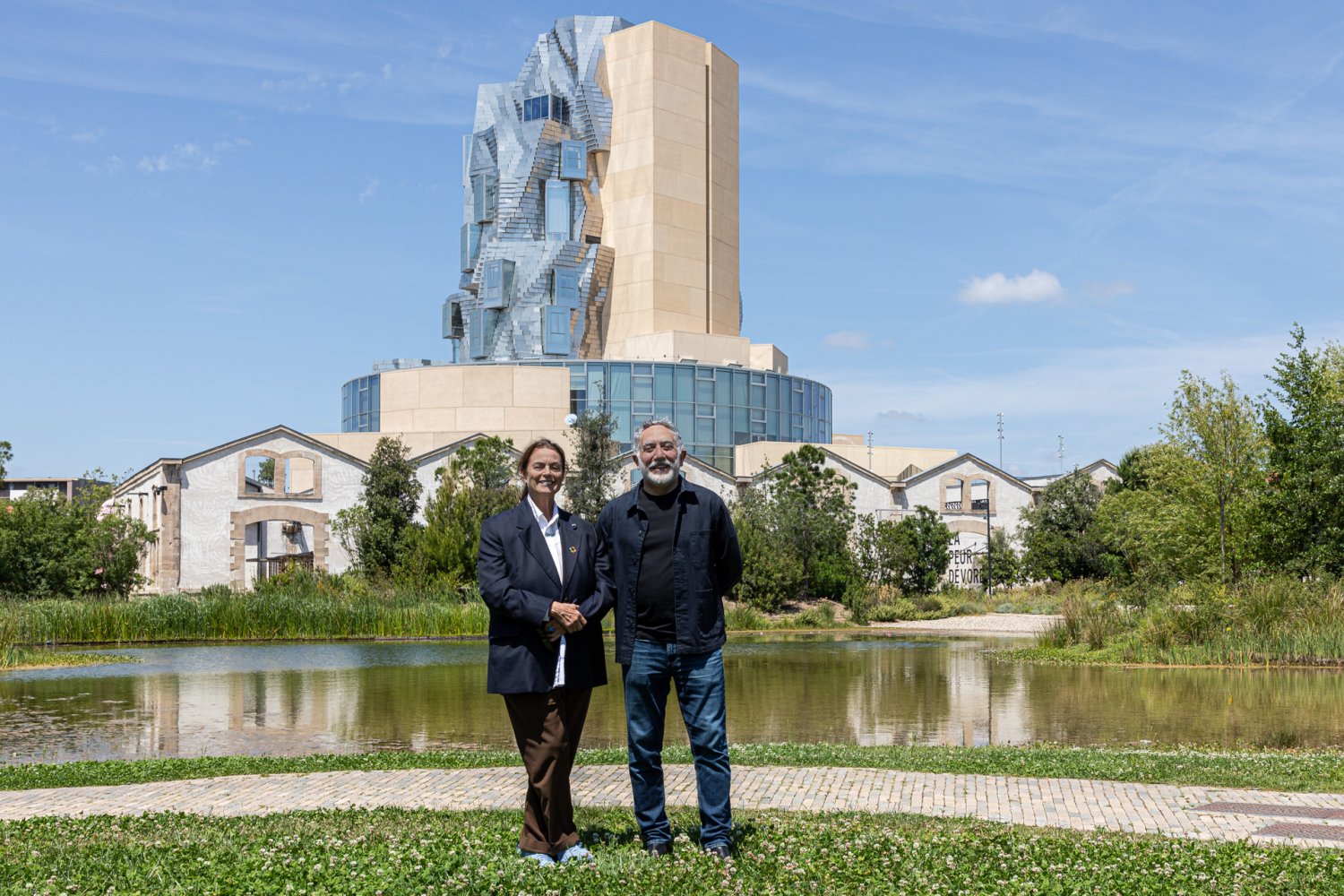
The MIT School of Architecture and Planning (SA+P) and the LUMA Foundation announced today the establishment of the MIT-LUMA Lab to advance paradigm-shifting innovations at the nexus of art, science, technology, conservation, and design. The aim is to empower innovative thinkers to realize their ambitions, support local communities as they seek to address climate-related issues, and scale solutions to pressing challenges facing the Mediterranean region.
The main programmatic pillars of the lab will be collaborative scholarship and research around design, new materials, and sustainability; scholar exchange and education collaborations between the two organizations; innovation and entrepreneurship activities to transfer new ideas into practical applications; and co-production of exhibitions and events. The hope is that this engagement will create a novel model for other institutions to follow to craft innovative solutions to the leading challenge of our time.
The MIT-LUMA Lab draws on an establishing gift from the LUMA Foundation, a nonprofit organization based in Zurich formed by Maja Hoffmann in 2004 to support contemporary artistic production. The foundation supports a range of multidisciplinary projects that increase understanding of the environment, human rights, education, and culture.
These themes are explored through programs organized by LUMA Arles, a project begun in 2013 and housed on a 27-acre interdisciplinary campus known as the Parc des Ateliers in Arles, France, an experimental site of exhibitions, artists’ residencies, research laboratories, and educational programs.
“The Luma Foundation is committed to finding ways to address the current climate emergencies we are facing, focusing on exploring the potentials that can be found in diversity and engagement in every possible form,” says Maja Hoffmann, founder and president of the LUMA Foundation. “Cultural diversity, pluralism, and biodiversity feature at the top of our mission and our work is informed by these concepts.”
A focus on the Mediterranean region
“The culturally rich area of the Mediterranean, which has produced some of the most remarkable civilizational paradigms across geographies and historical periods, plays an important role in our thinking. Focusing the efforts of the MIT-LUMA Lab on the Mediterranean means extending the possibilities for positive change throughout other global ecosystems,” says Hoffmann.
“Our projects of LUMA Arles and its research laboratory on materials and natural resources, the Atelier Luma, our position in one of Europe’s most important natural reserves, in conjunction with the expertise and forward-thinking approach of MIT, define the perfect framework that will allow us to explore new frontiers and devise novel ways to tackle our most significant civilizational risks,” she adds. “Supporting the production of new forms of knowledge and practices, and with locations in Cambridge and in Arles, our collaboration and partnership with MIT will generate solutions and models for the future, for the generations to come, in order to provide them the same and even better opportunities that what we have experienced.”
“We know we do not have all the answers at MIT, but we do know how to ask the right questions, how to design effective experiments, and how to build meaningful collaborations,” says Hashim Sarkis, dean of SA+P, which will host the lab.
“I am grateful to the LUMA Foundation for offering support for faculty research deployment designed to engage local communities and create jobs, for course development to empower our faculty to teach classes centered on these issues, and for students who seek to dedicate their lives and careers to sustainability. We also look forward to hosting fellows and researchers from the foundation to strengthen our collaboration,” he adds.
The Mediterranean region, the MIT-LUMA Lab’s focus, is one of the world’s most vital and fragile global commons. The future of climate relies on the sustainability of the region’s forests, oceans, and deserts that have for millennia created the environmental conditions and system-regulating functions necessary for life on Earth. Those who live in these areas are often the most severely affected by even relatively modest changes in the climate.
Climate research and action: A priority at MIT
To reverse negative trends and provide a new approach to addressing the climate crisis in these vast areas, SA+P is establishing international collaborations that bring know-how to the field, and in turn to learn from the communities and groups most challenged by climate impacts.
The MIT-LUMA Lab is the first in what is envisioned as a series of regionally focused labs at SA+P under the conceptual aegis of a collaborative platform called Our Global Commons. This project will support progress on today’s climate challenges by focusing on community empowerment, long-term local collaborations around research and education, and job creation. Faculty-led fieldwork, engagements with local stakeholders, and student involvement will be the key elements.
The creation of Our Global Commons comes as MIT works to dramatically expand its efforts to address climate change. In February 2024, President Sally Kornbluth announced the Climate Project at MIT, a major new initiative to mobilize the Institute’s resources and capabilities to research, develop, deploy, and scale-up new climate solutions. The Institute will hire its first-ever vice president for climate to oversee the new effort.
“With the Climate Project at MIT, we aim to help make a decisive difference, at scale, on crucial global climate challenges — and we can only do that by engaging with outstanding colleagues around the globe,” says Kornbluth. “By connecting us to creative thinkers steeped in the cultural and environmental history and emerging challenges of the Mediterranean region, the MIT-LUMA Lab promises to spark important new ideas and collaborations.”
“We are excited that the LUMA team will be joining in MIT’s engagement with climate issues, especially given their expertise in advancing vital work at the intersection of art and science, and their long-standing commitment to expanding the frontiers of sustainability and biodiversity,” says Sarkis. “With climate change upending many aspects of our society, the time is now for us to reaffirm and strengthen our SA+P tradition of on-the-ground work with and for communities around the world. Shared efforts among local communities, governments and corporations, and academia are necessary to bring about real change.”
